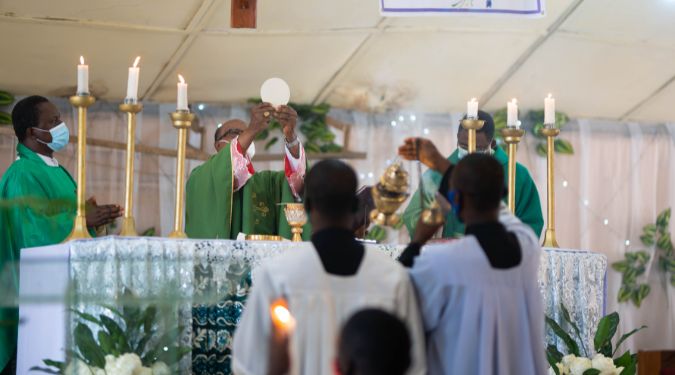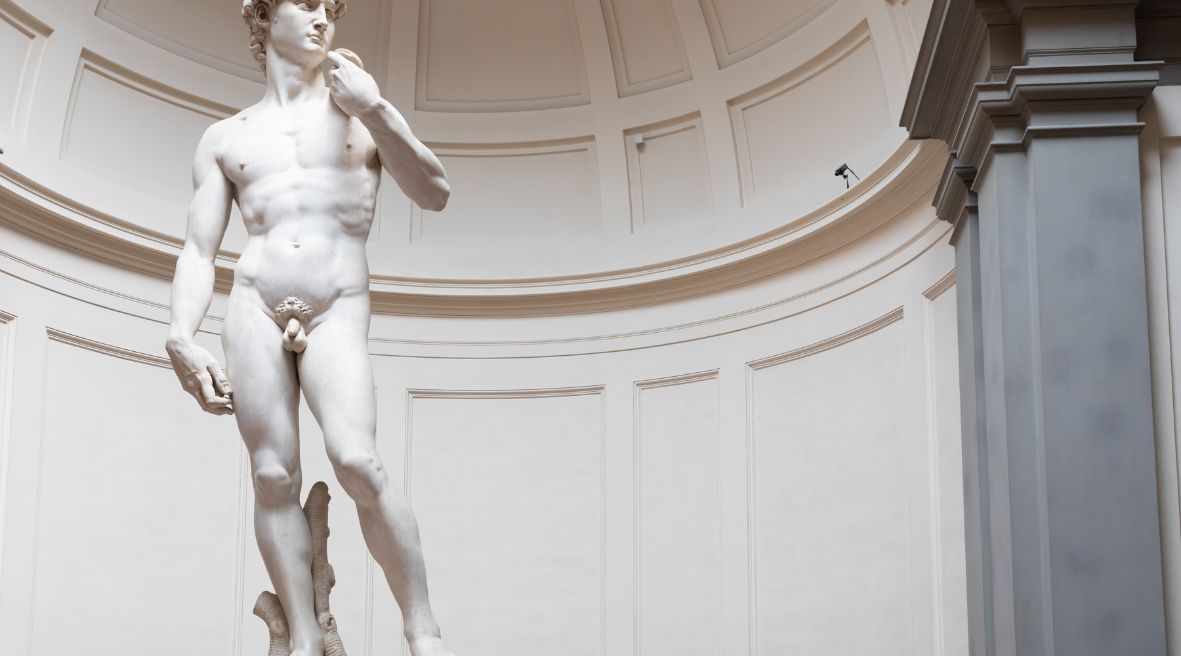Why do we Catholics ask the Saints in Heaven to pray for us? Is there any basis for that in the Bible? Let’s take a look.
Should members of the Body of Christ pray for each other?
Our non-Catholic friends may ask, “Shouldn’t we bring our petitions to Jesus first?” Absolutely! This is our duty as Christians. But we often ask others to pray for us, and we know that God delights in this. How do we know that God wants the members of the Body of Christ to pray for each other? Paul tells us in 1 Timothy 2:1-4 to pray for each other, and that this pleases God. In other places Paul asks others to pray for him (Rom. 15:30–32, Eph. 6:18–20, Col. 4:3, 1 Thess. 5:25, 2 Thess. 3:1), and he told them that he was praying for them too (2 Thess. 1:11).
You see, the saints in heaven are still part of the Body of Christ. St. Paul gives an excellent description of the Body of Christ in 1 Corinthians 12, and mentions that each believer is a member of it and has an indispensable function. Death does not rob a Christian of his membership in this Body.
The Scriptures do not tell us that our God-given ability to intercede for each other is diminished by death. On the contrary, James tells us that “the prayer of a righteous man has great power in its effects.” (James 5:16). Well, aren’t the saints in heaven are indeed among the most righteous men and woman (Hebrews 12:22-23)? And if they are, aren’t their prayers are powerful?
Are the Saints in heaven aware of our prayers and needs?
But, some ask, “Are the Saints in heaven aware of our prayers and needs?” The New Testament amply supports the idea that heavenly beings, both angels and men, are aware of our circumstances here on earth. The guardian angels that Jesus told us about (Matthew 18:10) certainly could not be considered “guardians” if they were not intimately aware of the plight of their assigned children on earth! Remember too that when Jesus was transfigured on Mt. Tabor in Luke 9:28-36, Elijah and Moses appeared with him, and they discussed with Jesus about what was about to happen to him in Jerusalem. Elijah and Moses, both dead, certainly were aware of what was happening on earth. Lastly, in Revelation 5:8 and 8:3-4 we read of an angel and elders offering the prayers of the Saints before the altar of God.
How can the saints in heaven possibly hear all of our requests for prayers at once?
By the grace of God. We know that on the Day of Judgment that we will be aware of all of the events of our lives and the events in the lives of others (Luke 12:2-3). Now, this is certainly a lot of information to process, but since we know that we will be able to do this at that time, it is not unreasonable to believe that through God’s grace and when freed from the limitations of space and time, the Saints can be aware of the requests for prayers from believers.
Doesn’t the Bible forbid us to contact the dead?
God has certainly forbidden us to conjure up spirits (Deut.18:10-15). God’s people are warned not to conjure up spirits for the purposes of gaining information, but rather, to look to his prophets instead (Deut. 18:15). When we ask the saints to pray for us, we are not asking them to speak through us or to us. We are not asking them to appear to us. We are not asking for secret information. Requesting their prayers is entirely different than conducting a séance, which is strictly forbidden.
The Cloud of Witnesses
We believe that the saints in heaven are part of the Body of Christ, and as such, they have not lost any of their intercessory power, but rather have gained more. This power to intercede for us is entirely dependent upon the grace of God. We Catholics believe in a radical interdependence between members of the Body of Christ, both living and dead. This interdependence even transcends death. The author of the letter to the Hebrews paints an exciting word picture of this reality in the twelfth chapter of that letter. There we see the saints in heaven are like a “cloud of witnesses” (Hebrews 12:1), a full stadium of interested, fully engaged spectators who cheer us on in our race. Later in that same chapter, we learn that we are not only drawn near to God and to Jesus our mediator, but also to “innumerable angels in festal gathering“, “the assembly of the first-born” and to “the spirits of just men made perfect” (Hebrews 12: 22-24).
So let us lift our concerns up to God in prayer, remembering to ask our brothers and sisters on earth and in heaven to pray for us.




Very good, Chuck. What is interesting about “their angels” is that God involves them in the lives of humans in some way. The Father could do everything on His own, but evidently He wants his creatures to share in the activity of loving and caring for others. God, as Love, is like a spreading fire.
Great read Mr. White! Memorias and God bless.